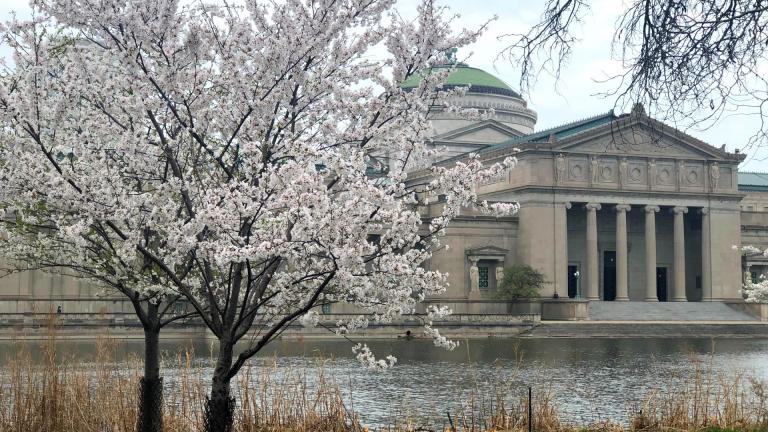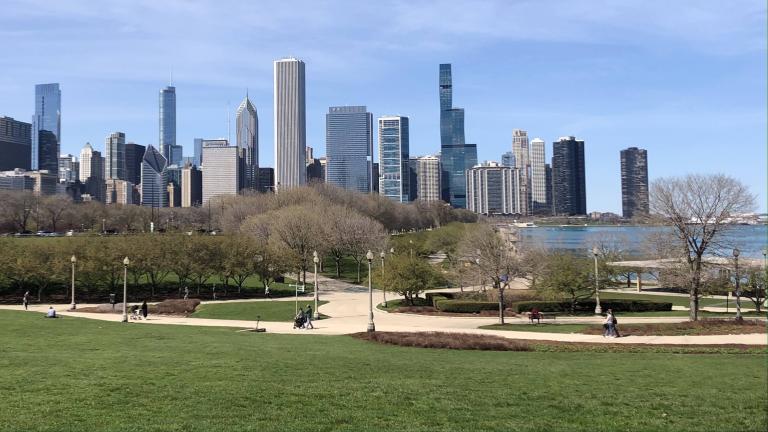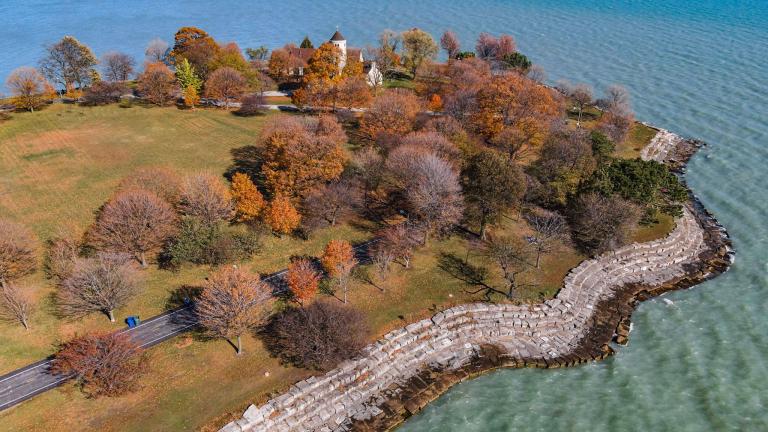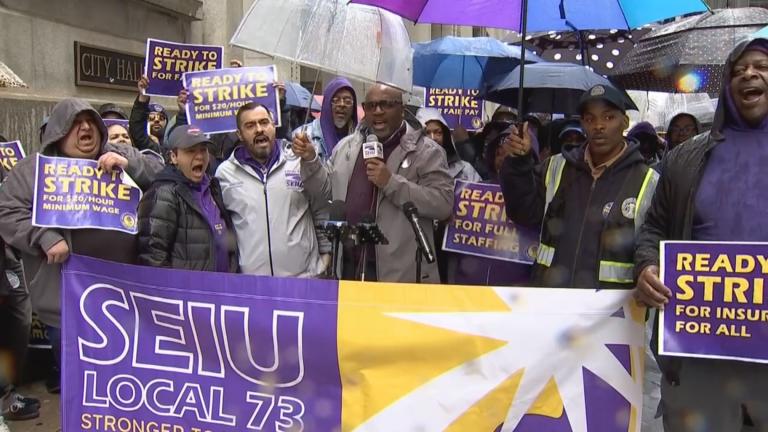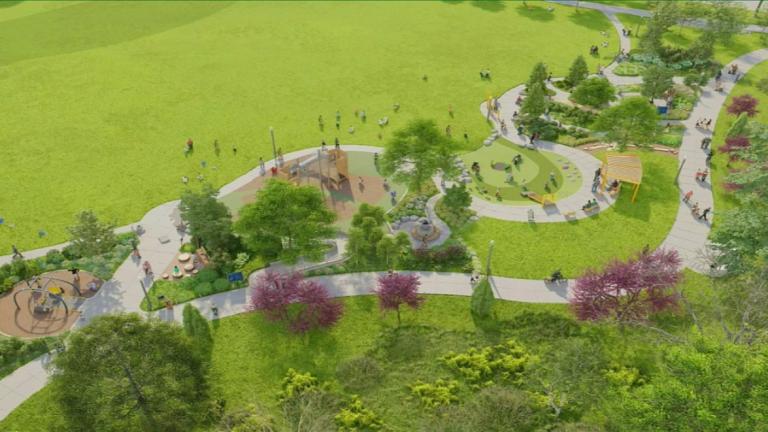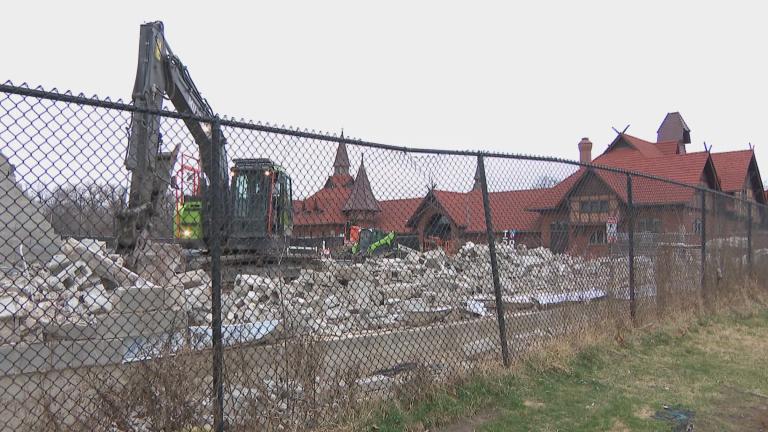The Chicago Park District Board of Commissioners recently approved Riot Fest’s September return to Douglass Park after much community pushback.
Neighbors complained of noise, trash and the loss of their neighborhood park for 16 days — down from 17 days after concert promoters listened to some in the community.
“Community engagement means that you listen to understand, not to defend,” said Myetie Hamilton, president of the Chicago Park District Board of Commissioners to Riot Fest organizers, at a meeting on June 14. “If there’s been disrespect... you acknowledge it, please. You own it, and then you do better.” Some in the audience broke into applause.
Hamilton spoke right before the unanimous board vote approving the multi-day concert festival. She was impressed by some of the concessions to the neighborhood opposition. “Local hiring, local talent, local vendors, and as part of this continuing in engagement beyond the fest, I’m very encouraged,” she said.
She added, “So, in addition to looking to you Riot Fest to meet every single promise and commitment that you have made, we’re also looking to you to lean in in a deep way as you’ve been doing with all community members.”
In 2022, the Chicago Park District implemented a review process for any concert with over 10,000 audience members that requires organizers to go through a vote from the Park District’s Board of Commissioners. That process has helped push concert promoters to do more for impacted communities, but it has also created disagreements among neighbors.
“It created a lot of pain [for] Black and Brown people in communities that are already in pain really having to fight with each other to end up getting a few crumbs for their community,” said Juanita Irizarry, president of Friends of the Parks.
“Riot Fest will pay money to rent that park, but that money goes into the coffers downtown. It doesn’t go back into Douglass Park,” Irizarry added. “Now, they do have to make repairs if the park is damaged specifically. But, meanwhile maybe the broken steps at the field house of Douglass Park don’t get fixed.”
Irizarry hopes the Park District will create a community benefits framework that would guide organizers on the benefits that should flow back to the communities that host events.
State Rep. La Shawn Ford, D-Chicago, says since profits from events go to the Chicago Park District’s general operations fund, the financial gains from Riot Fest don’t help his constituents directly. He has proposed a 2% community benefits tax.
“At the end of the day, the people giving a concert, they walk away rich. They walk away with more money than they had before, which means that they’re better off,” said Ford. “There are reports that maybe $300 million is earned from Riot Fest. And in Lawndale, the majority of the people spoke out against it and yet they’re forced to have it. Therefore, we should make sure that there’s a benefit at the end.”
The Chicago Park District sent WTTW News a statement that reads in part, “The Chicago Park District remains committed to balancing the needs of children and families who rely on our parks and welcoming world-class cultural events and experiences to our neighborhoods. These events contribute greatly to the rich cultural landscape of our city but also generate $20 million in revenue annually that directly supports vital park projects and programming.”
Ford also addressed some of the persistent problems his tax could address.
“These communities, especially Lawndale, has a high level of home homelessness,” Ford said. “We have a high level of people struggling from substance use disorder. We have a high level of unemployment. It’s an opportunity to support the community and leave the community better than it was found at the end of the concert.”
Drug use was also a concern for Friends of the Parks.
“One of the issues we express concern about is the communities around the event held in a park will be policed around drug issues, but the attenders of the event will do drugs inside the gates while being protected by the police,” said Irizarry. “And there’s a lot of problems with that.”
Both Irizarry and Ford joined “Chicago Tonight” to discuss these issues. The Chicago Park District declined an invitation to send General Superintendent and CEO Rosa Escareño or a representative from the executive leadership team or from the Board of Commissioners to join.
Some of the larger music festivals in Chicago parks include:
- Lollapalooza - Four days in Grant Park
- Pitchfork - Three days in Union Park
- Arc Music Fest - Three days in Union Park
- Riot Fest - Three days in Douglass Park
- Heatwave Festival - Two days in Northerly Island
- Re:SET - Three days in Riis Park
This article originally published June 26. It has been updated to correct the location of Heatwave Festival.

